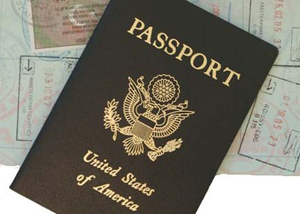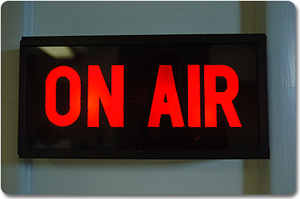K-STATE PROFESSOR TAPS INTO TECHNOLOGY TREND IN DELIVERY OF CONFERENCE SPEECHES, TELENET 2 SERVICES AVAILABLE FOR USE
Doug Powell, associate professor of diagnostic medicine pathology, has given food safety presentations around the world in places such as New Zealand, Australia and even Lawrence, Kan. However, he has delivered them all without ever leaving the comfort of his own kitchen.
 Powell has broadcasted more than 20 keynote speeches and presentations via programs such as Skype and iChat since 2000. Using a combination of live video feeds and pre-recorded video, Powell has presented on various food safety topics to audiences ranging in size from five to 800 people.
Powell has broadcasted more than 20 keynote speeches and presentations via programs such as Skype and iChat since 2000. Using a combination of live video feeds and pre-recorded video, Powell has presented on various food safety topics to audiences ranging in size from five to 800 people.
In his initial broadcast, Powell utilized a pre-recorded presentation as a quick fix to an urgent problem. He had been selected to deliver the Ivan Parkin Lecture at the International Association for Food Protection's annual conference in Atlanta, Ga. However, due to an ambush of paperwork at the Canadian border on the trip down, Powell was not going to be able to make it to the conference.
To remedy the situation, Powell video taped his keynote speech in his kitchen that afternoon and e-mailed the video to the University of Georgia.
"When the anointed time came, they had downloaded the talk, and they broadcasted it," he said. "Even today there is still a 'wow' factor associated with it because no one was doing it back then, but now it's routine."
According to Powell, there are many advantages to using this form of technology in delivering speeches, such as eliminating the costs and stresses of travel and increasing a professor's overall availability. Although, it does come with additional challenges, he said, such as the ever-present possibility of disrupted Internet feed and a lack of feedback from the audience.
"I actually find it forces me to be more creative," he said. "If you're giving a talk in person, you can tell when people are sort of zoning out or falling asleep and you can modify it. You don't get that on video because you're talking to a camera."
Powell said to help spice up the video feed he often integrates action segments into his pre-recorded speeches, for example, utilizing cooking as a form of demonstration.
As for the future of broadcasting speeches and presentations, Powell said he definitely sees the need for professors to utilize this method as a form of delivery to audiences.
"It's not a big trend yet, but I think it will catch on," he said. "Travel budgets are so tight. It used to be going to conferences here and there, but now I know people are using it a lot -- not just for conferences but also training like distance education."
As for now, Powell said that he is one professor that will definitely continue to keep cooking up speeches in his kitchen.
***
Susan Barton, director of the Kansas Regents Network and Telenet 2, said she couldn't agree more with Powell's assessment about the future of conferencing.
Barton said she has been seeing an increase in the facility's services in recent months.
"This is really a cost effective and green way to conference," she said. "Plus it saves on travel time."
Telenet 2 offers video conferencing that is free for academic credit courses. There is a fee for an audio conference.
 Video conferencing is done with high bandwidth and in high definition, and can be recorded. Through the use of a multipart connecting unit, a conference can also be broadcast to multiple locations at once.
Video conferencing is done with high bandwidth and in high definition, and can be recorded. Through the use of a multipart connecting unit, a conference can also be broadcast to multiple locations at once.
In the past few months, Barton said the facility's services have been used by faculty for various purposes, including:
* Leland McKinney, associate professor of grain science and industry, broadcasted a talk to Iraq and Jordan simultaneously.
* Jim Drouillard, professor of animal sciences and industry, gives annual presentations to South Africa.
* Saugata Datta, assistant professor of geology, used it to communicate with Lafayette College in Pennsylvania for his introduction to geochemistry and environmental site assessment courses.
* Mike Boland, professor of agricultural economics, uses the service to connect his agriculture management strategy class with classes from University of Idaho, Montana State University and North Dakota State University. The students collaborate and then bring their ideas to senior management staff of various companies via video conferencing.
Telenet 2 is in Dole Hall. To use the facility's services, which can extend past 5 p.m., contact Barton at 785-532-5995.